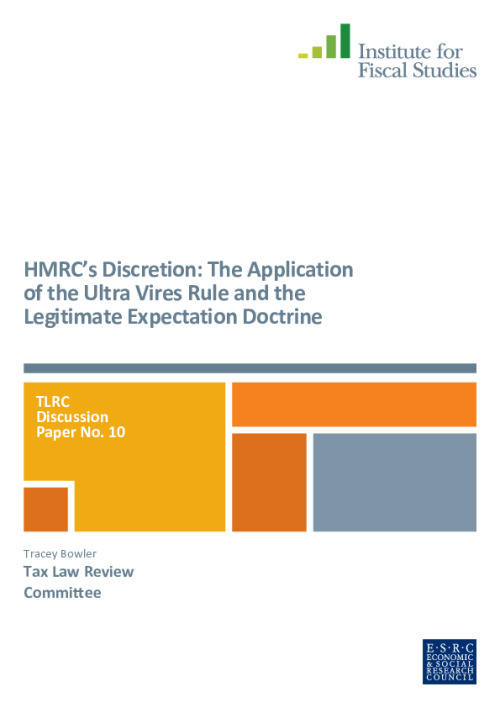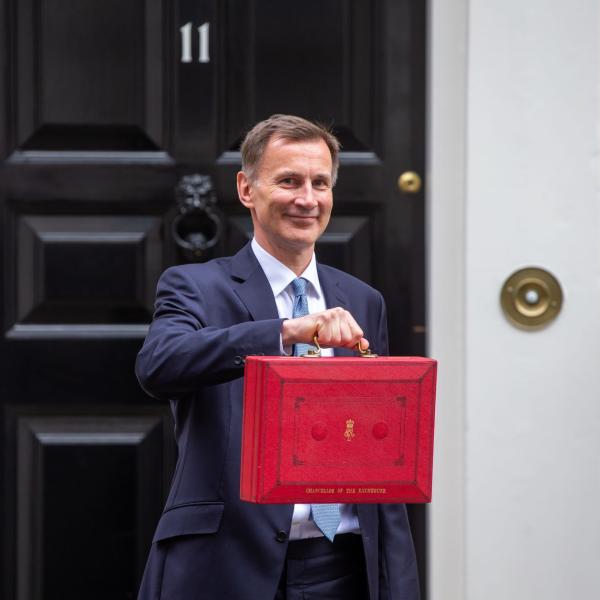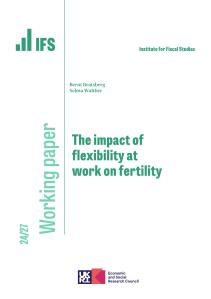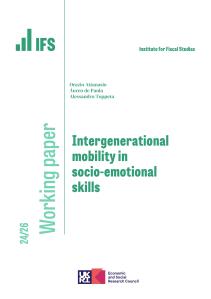Downloads

TLRC_DP_10.pdf
PDF | 646.34 KB
This paper considers the development of HMRC’s discretionary powers and the limits applied by the courts on the use of those powers with particular reference to the legitimate expectation rule. The paper aims to promote discussion about the extent of HMRC’s discretion in interpreting and applying the tax rules set out by Parliament and whether taxpayers’ abilities to challenge the use of that discretion are sufficient. The paper identifies problems with the application of HMRC’s discretionary powers and the ability of taxpayers to rely on the various forms of statements and guidance which HMRC are increasingly under pressure to provide, as well as considering the procedures for claiming reliance on statements. It also suggests some ways to improve the position and invites comments and debate of the issues.
Authors

Tracey Bowler
Report details
- DOI
- 10.1920/re.ifs.2014.0102
- Publisher
- IFS
Suggested citation
Bowler, T. (2014). HMRC’s Discretion: The Application of the Ultra Vires Rule and the Legitimate Expectation Doctrine. London: IFS. Available at: https://ifs.org.uk/publications/hmrcs-discretion-application-ultra-vires-rule-and-legitimate-expectation-doctrine (accessed: 30 June 2024).
More from IFS
Understand this issue

Where next for the state pension?
13 December 2023

Social mobility and wealth
12 December 2023

Autumn Statement 2023: IFS analysis
23 November 2023
Policy analysis

How would the parties’ tax and spending plans affect Scotland and Wales?
28 June 2024

General Election 2024: Manifesto Analysis Presentations
24 June 2024

How do the last five years measure up on levelling up?
19 June 2024
Academic research

The impact of labour demand shocks when occupational labour supplies are heterogeneous
28 June 2024

The impact of flexibility at work on fertility
11 June 2024

Intergenerational mobility in socio-emotional skills
5 June 2024